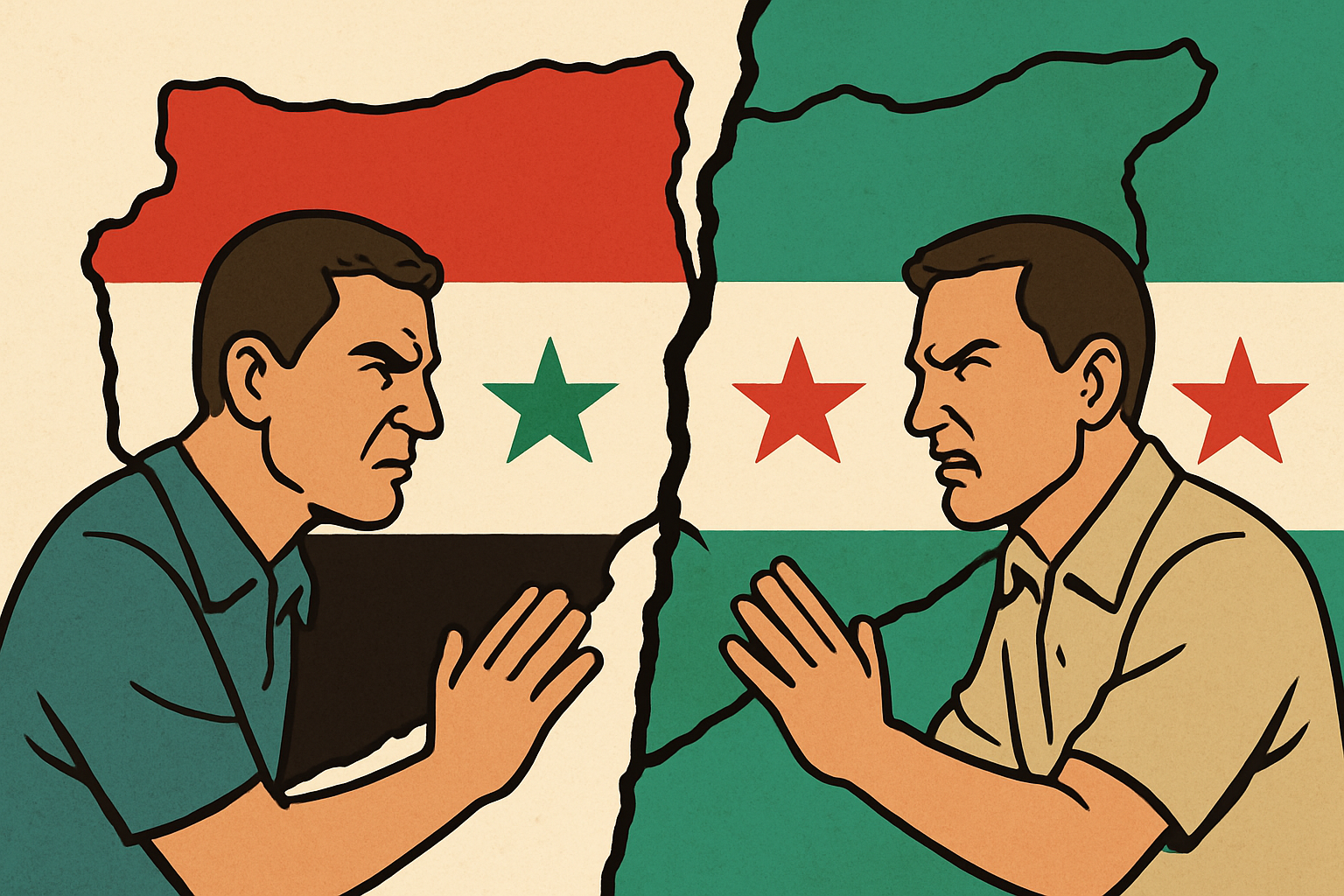Syria in 2025: A Nation in Transition Amidst Conflict
The situation in Syria in 2025 is complex, marked by significant political shifts, ongoing violence, and international involvement.

🫳 The Fall of Assad and the Rise of a Caretaker Government
The Syrian civil war, which began in 2011 as part of the Arab Spring, culminated in the ousting of President Bashar al-Assad in December 2024. This marked a turning point after nearly 14 years of conflict that saw widespread protests, violent crackdowns, and a brutal war involving multiple factions. By March 2025, revolutionary groups united under a Syrian caretaker government, with former Hayat Tahrir al-Sham (HTS) leader Ahmed al-Sharaa appointed as interim president. At the Syrian Revolution Victory Conference in Damascus on January 29, 2025, the government announced the dissolution of various armed militias, integrating them into the Syrian Ministry of Defense to consolidate state control. A new constitutional declaration was also signed, emphasizing human rights and freedoms, though its implementation remains under scrutiny.
😡 Ongoing Violence and Sectarian Tensions
Despite the regime change, Syria continues to face significant unrest:
- Sectarian Violence: In early 2025, violence flared against minority groups, particularly Alawites in the coastal regions, with estimates of 1,000–1,500 deaths in March alone. Clashes in Suwayda Governorate between Syrian Druze and Bedouin groups in July 2025 led to further bloodshed, with the Syrian Observatory for Human Rights reporting 300 Druze deaths, including 83 civilians allegedly summarily executed by government forces. These incidents highlight ongoing sectarian tensions and challenges in stabilizing the country.
- Insurgent Attacks: Remnants of Assad loyalists, including the Syrian Popular Resistance, launched attacks against the new government in early 2025, particularly in the western coastal areas and along the Syria-Lebanon border. By March 10, 2025, the government announced the completion of operations against these insurgents. Additionally, the Islamic State claimed its first attack on the new government in May 2025, targeting a military vehicle in Suwayda.
- Druze and Kurdish Integration: The Kurdish-led Syrian Democratic Forces (SDF) signed an agreement on March 10, 2025, to join the new Syrian state institutions, though negotiations on timing and conditions are ongoing. In Suwayda, clashes between Druze militias and government forces occurred in February and April-May 2025 but were resolved through agreements. However, these agreements have not fully quelled tensions, as evidenced by the July clashes.
🌐 International Involvement and Israeli Airstrikes
Foreign powers continue to play a significant role in Syria:
- Israeli Airstrikes: Israel has conducted numerous airstrikes in Syria since Assad’s fall, particularly targeting government infrastructure and military assets. In July 2025, the Israeli Air Force struck Syrian tanks in Suwayda as a “warning” and bombed government buildings in Damascus, including the Ministry of Defense. Israel justifies these actions as support for the Druze minority and a means to counter perceived threats, but interim President al-Sharaa has condemned them as attempts to destabilize Syria. Analysts suggest Israel’s broader goal is to weaken Syria and expand its regional influence.
- Other Foreign Actors: Social Media indicate ongoing concerns about foreign involvement, with Turkey, the United States, and France engaging in discussions with the Syrian government and the SDF. There are reports of plans for the Kurdish YPG/PKK to withdraw from Arab-majority areas like Raqqa and Deir ez-Zor, though these remain unconfirmed. Russia and Iran, former allies of Assad, have seen their influence wane but continue to maintain interests, with Russia seeking to retain its Syrian bases.
🆘 Humanitarian and Political Challenges
The humanitarian situation in Syria remains dire, with 16.5 million people in need in 2025 and 4.5 million Syrian refugees in neighboring countries. The conflict has caused extensive damage to infrastructure, including schools and hospitals, complicating recovery efforts. The World Bank and International Monetary Fund have begun re-engaging with Syria following the lifting of some international sanctions, which could aid reconstruction.
Politically, the caretaker government faces challenges in consolidating power and ensuring accountability. The UN Human Rights Council’s resolution on April 4, 2025, welcomed the constitutional declaration but urged credible accountability for past crimes to foster reconciliation. However, a fact-finding committee established by al-Sharaa to investigate sectarian violence has been criticized for lacking transparency.
🤔 My Take
The fall of Assad in 2024 was a historic moment for Syria, but the transition to a stable, inclusive state is fraught with challenges. The caretaker government’s efforts to unify factions and draft a new constitution are promising, yet sectarian violence, particularly against Alawites and Druze, underscores the deep divisions that remain. Israel’s airstrikes, while framed as protective, risk escalating tensions and undermining Syria’s sovereignty, potentially serving as a pretext for broader regional control. The involvement of foreign powers like Turkey, the U.S., and Russia further complicates the path to peace, as their competing interests often overshadow Syrian agency. For lasting stability, the government must prioritize transparent governance, accountability for past atrocities, and equitable integration of all communities—otherwise, Syria risks sliding back into chaos despite the hope of a post-Assad era.
🗒️ Final Notes
Syria in 2025 is at a crossroads. The fall of Assad has opened opportunities for rebuilding, but ongoing violence, sectarian tensions, and foreign interventions pose significant hurdles. The integration of diverse factions into a unified state, coupled with addressing humanitarian needs and ensuring justice for past atrocities, will be critical for Syria’s path toward stability. As the international community watches closely, the actions of the caretaker government and foreign actors will shape the country’s future.
👋 Follow Me!
If you enjoy my content, please follow me on Social Media and consider sharing this content with your friends! I hope you have a great day! - Karl Bullock "That Smoke Pit Veteran"
X / Threads / Facebook / Instagram
Enjoyed the content? Help keep That Smoke Pit Veteran alive with a kind donation! Your support means the world.
Email: [email protected]

